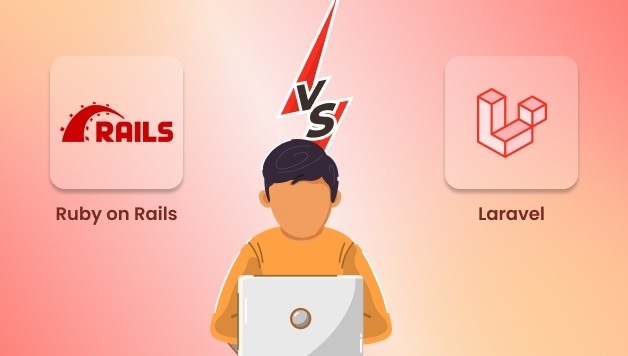Multi-tenant SaaS is at the core of modern software businesses in 2025. Startups and enterprises are constantly debating Rails vs Laravel for building scalable, secure, and cost-efficient SaaS products. Both frameworks offer robust ecosystems, but choosing the right one for multi-tenancy requires a strategic approach.
This article breaks down the Laravel vs rails battle for SaaS, analyzes strengths and weaknesses, and guides founders on making the right choice.
Why Multi-Tenant SaaS Matters in 2025
- Cost Efficiency: Shared resources reduce infrastructure costs.
- Scalability: One codebase supports multiple customers.
- Security: Centralized updates protect all tenants.
- Faster GTM: Developers deploy products quicker.
With SaaS growth accelerating in 2025, businesses must align their framework strategy to achieve long-term success.
Rails vs Laravel: The Core Comparison
1. Development Speed
- Rails (Ruby on Rails): Convention-over-configuration speeds up SaaS MVP development.
- Laravel (PHP): Flexibility with artisan commands and ecosystem libraries makes SaaS development intuitive.
👉 Verdict: For startups seeking rapid MVP launch, Rails vs Laravel both shine, but Rails edges slightly with faster prototyping.
2. Multi-Tenant Architecture Support
- Rails: Offers gems like Apartment and ActsAsTenant for tenancy management.
- Laravel: Supports multi-tenancy via packages like Tenancy for Laravel and Hyn.
👉 Verdict: In the laravel vs rails debate, Laravel gives developers more structured tenancy packages.
3. Ecosystem & Community
- Rails: Mature community with SaaS-focused gems.
- Laravel: Huge PHP ecosystem, with many SaaS boilerplates available.
👉 Verdict: Rails vs Laravel is balanced, but Laravel’s larger developer base in 2025 makes it easier to hire talent.
4. Performance & Scalability
- Rails: Ideal for rapid scaling, though requires more resources.
- Laravel: More lightweight and flexible for mid-sized SaaS.
👉 Verdict: Enterprises may prefer Rails, while startups benefit from Laravel’s cost-effectiveness.
Choosing Between Rails vs Laravel for SaaS
When evaluating laravel vs rails for your multi-tenant SaaS, consider:
- Budget & Resources – Laravel is more affordable for startups.
- Time-to-Market – Rails accelerates MVP development.
- Talent Availability – A Laravel development company is easier to find globally.
- Scaling Needs – Rails handles enterprise-grade apps, Laravel works well for SMB SaaS.
When to Choose a Laravel Development Company
Partnering with a laravel development company helps SaaS founders:
- Set up multi-tenant architecture faster
- Optimize performance with the latest PHP updates
- Ensure security & compliance for 2025 SaaS regulations
Final Thoughts
The Rails vs Laravel choice in 2025 depends on your SaaS vision.
- Pick Rails if you prioritize enterprise scalability and rapid prototyping.
- Pick Laravel if you want cost-effectiveness, strong tenancy support, and global developer availability.
Whether you’re a startup or scaling enterprise, the Rails vs Laravel decision is crucial for building a competitive multi-tenant SaaS product in 2025.


